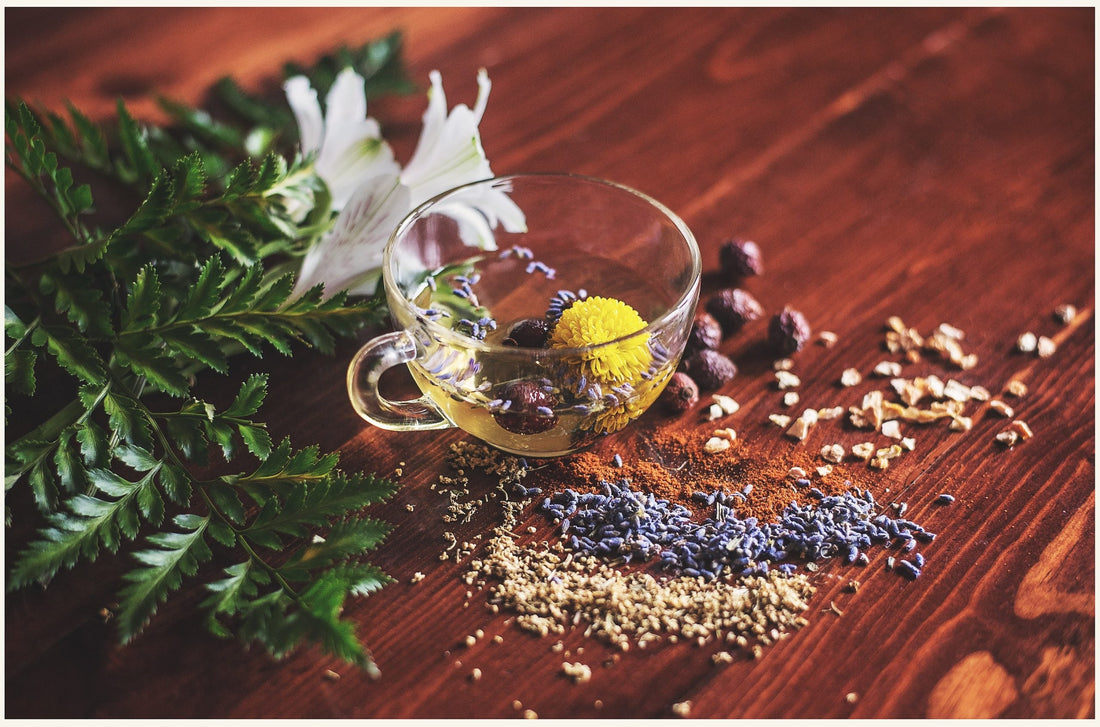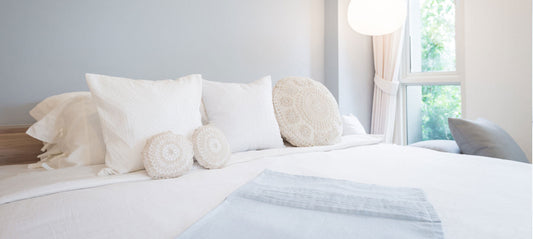
The Complete Guide of Herbs to Aid Sleep
josielWhile one night of restless sleep might not seem like the end of the world, a few nights of insomnia can wreak havoc on your body. Sleep is such a vital part of living a healthy lifestyle, but it can be hard to get when your body just isn’t cooperating. That’s where nature’s own sleep aids can help. Some herbs are natural sleep aids that can help you get the rest you need. Here is our complete guide of herbal remedies for sleep.
What Affects a Good Night’s Rest?
So many parts of our day-to-day lives can affect how well we rest at night. Your exercise routine, diet, hydration, and light exposure can all determine how sleepy you feel at night. For example, an empty stomach can keep you awake, but a heavy meal right before bed can also do that. Balancing each of these facets of your life can help you feel sleepy when it’s time for bed.
In addition, one hormone in particular affects how you might sleep at night. The stress hormone your body creates—cortisol—can keep you tossing and turning in bed. While cortisol is helpful during the day, having too much stress at night will keep you up. Looking for herbal sleeping remedies that promote relaxation can then help reduce cortisol build-up and help you sleep better at night.
4 Herbs to Aid Sleep
When it comes to finding ways to get to sleep, there are a few options. One popular option is to use relaxing herbs as a natural way to get to sleep. Some people avoid medications because they’re worried about building a tolerance on the substance, which could ultimately lead to worse sleep once they stop taking it. Herbs don’t have this same risk. When you use natural herbs to fall asleep, you won’t develop a dependency on them or experience withdrawal symptoms afterward.
These are four of the most popular herbs that may help you find deeper rest at night:
1. Chamomile

Chamomile is a gentle herb that provides calming and relaxation, which in turn helps you sleep. A little chamomile before bed can help you to wind down and be ready to go to sleep. Herbal remedies like chamomile don’t come in a typical dosage, but you can find it in a variety of products:
- Tea. Chamomile flowers are frequently used in calming herbal teas. You can add the flowers yourself or steep tea bags from your local store that have chamomile in them.
- Essential oils. In oil form, chamomile can be inhaled from a diffuser or diluted and applied directly to your skin.
- Tinctures. Chamomile as a topical plant tincture can also be applied to your skin.
- Tablets or capsules. Chamomile as tablets or capsules can be eaten or swallowed.
However you choose to use chamomile, you can find sleep benefits. While herbs are generally safe and chamomile side effects are uncommon, it’s important to note that some people are allergic to chamomile—especially those with allergies to ragweed, chrysanthemum, marigold, and daisies. Before applying chamomile to your skin, you should do a test patch. Always remember to dilute the herb before applying it anywhere.
2. Valerian Root

Valerian root is an herb from Asia and Europe, and it’s been used since the 18th century to aid with sleep. Though scientists aren’t sure which part of the plant actually aids in sleep, many people have found valerian to help. That’s why it’s one of the most popular herbal sleep aids. Its mild calming effects aren’t known to cause daytime sleepiness after taking it. There is also potential that valerian can help with menstrual cramps as well. There are several products that include valerian:
- Extracts. These extracts can be diffused and inhaled.
- Tea. Valerian root tea is a common way to take the herb, but you can also add dried root to tea yourself.
- Dietary supplements. Valerian is also sold as a dietary supplement in the form of capsules.
Valerian root is a gentle herb with rare side effects, like headache and dizziness. There is inconclusive research on the effects of valerian root on pregnant and lactating women, so if that is you, you should speak with your doctor before using the herb.
3. Lavender

Lavender is common in perfumes and oils, so not many people think to turn to it for sleep help. But lavender has long been used as a natural aid in reducing anxiety, and it’s believed that reducing anxiety can then help you sleep better. Lavender is typically used as an oil in these ways:
- Diffused. A few drops of lavender oil can be added to a diffuser and placed near the bed or inhaled.
- Topical application. Diluted lavender oil can be applied to your forehead, around your nose, or the soles of your feet.
- Pillow application. A few drops of lavender oil on your pillow can also work.
Dried lavender flowers can be added to tea as well. Lavender is also known to relieve pain, improve circulation, relieve headaches, and even ease abdominal discomfort. Lavender oil should always be diluted and tested in a small patch on your skin before using elsewhere.
4. Passionflower

Passionflower can help with relaxation and to induce feelings of sleepiness. This flower is often combined with other herbs like valerian to help treat insomnia. In addition to helping with insomnia, passionflower may also aid with pain, anxiety, muscle spasms, inflammation, and even symptoms of menopause. Passionfruit is often found in two main products:
- Tea. You can add the dried flowers to tea or steep store-bought bags with passionflower in it just before bedtime.
- Capsules. Passionflower can be taken as a capsule following the specific dosage recommended on the package.
Passionflower isn’t recommended for pregnant or lactating women. In addition, passionflower can interact with certain medications. Some blood thinners and antidepressants don’t mix with passionflower. Rare side effects of passionflower can also include dizziness and confusion.
Over-the-Counter Supplements to Aid Sleep
Herbs aren’t the only natural ways to find sleep help. Many people also benefit from using over-the-counter supplements that mimic the body’s own chemical production to find rest. These are two of the most common supplements:
Melatonin
Your brain produces melatonin naturally, but with all the light we’re surrounded with, you may produce less melatonin or it may have less effect. A melatonin supplement can help people fall asleep quickly and even help you stay asleep longer. In addition, melatonin is beneficial for shift workers because it’s been shown to improve sleep quality even during the daytime.
Melatonin is generally considered safe, though it isn’t approved as an official drug and can require a prescription in some countries. Some studies show that it can be effective both in the short term and long term as well. Dosage is crucial to using melatonin effectively. 3–10 milligrams is usually all that’s needed, and taking more can cause daytime drowsiness.
Amino Acids
Taking amino acid supplements can help with sleep. Tryptophan, L-theanine, and 5-hydroxytryptophan (5-HTP) can help you fall asleep quicker. These amino acids can be taken as capsules before bedtime. With the use of supplements, you should watch out for abdominal discomfort or other unusual symptoms and discontinue use if they continue.
Overall, herbs and over-the-counter supplements can help with insomnia and get you back on track with your sleep schedule. To learn more about natural sleep solutions, read more about natural sleep aids and sleepy foods.




